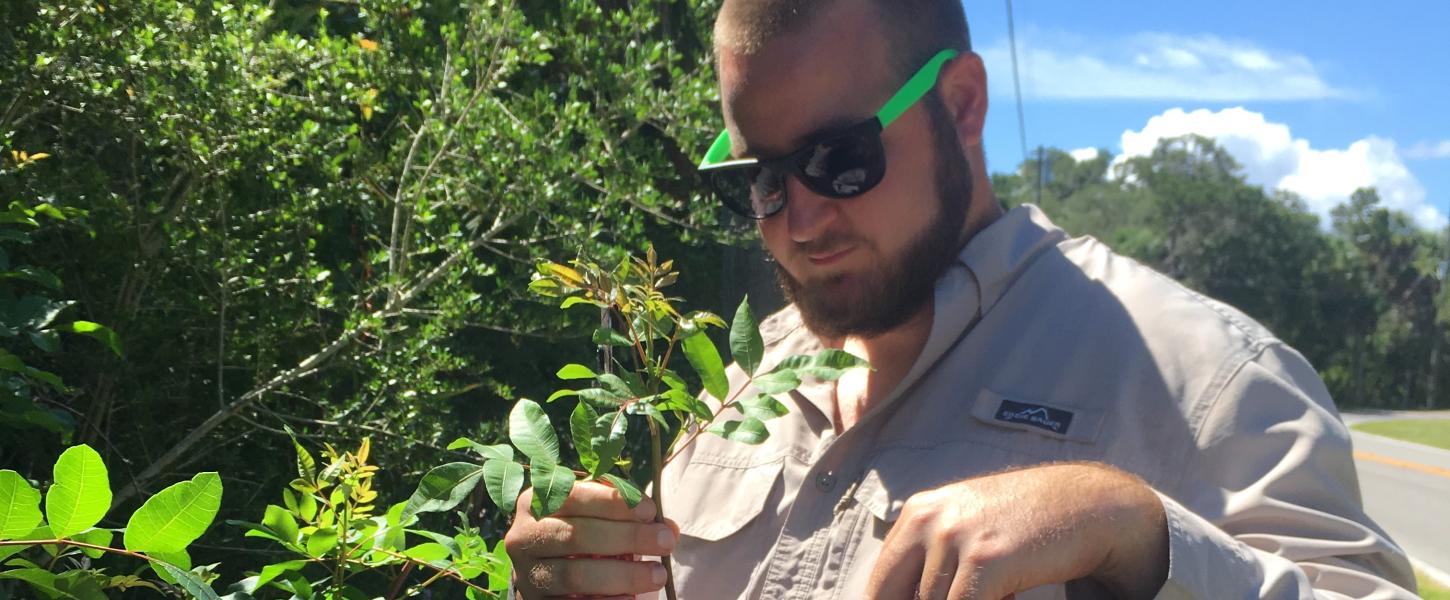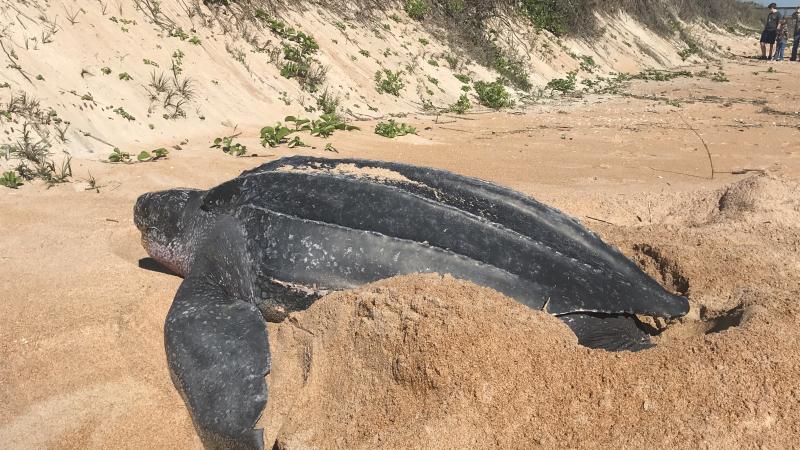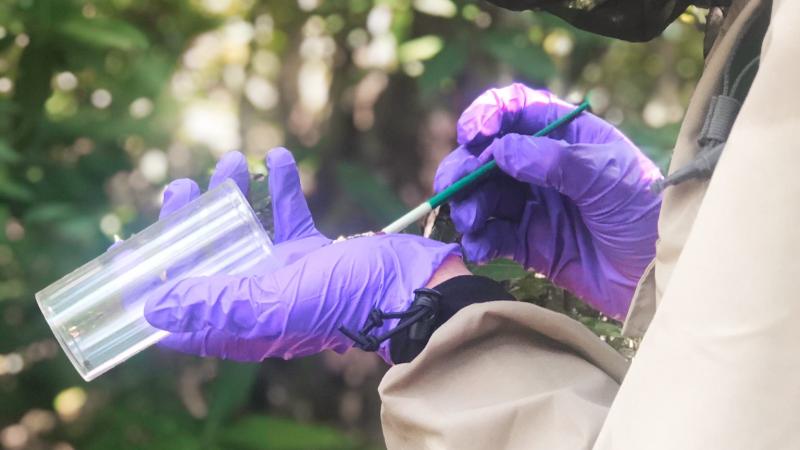
Bugs, Biologists and Brazil

What do bugs, biologists and Brazil have to do with Florida State Parks? More than you might think. This curious combination may hold the solution to a harmful infestation in Florida’s natural areas.
Brazilian pepper, or schinus terebinthifolia, is a hardy plant that produces bright red fruit. A relative of poison ivy, it’s capable of growing in a wide variety of soils, in urban or rural areas, and even near saltwater. The plants grow as a shrub or small tree with a short trunk and form a dense thicket where few other species can grow.
These characteristics make Brazilian pepper a worrying threat to Florida’s natural communities. Biologists call Brazilian pepper an invasive species, a plant or animal that is not native but was introduced from elsewhere and became a threat to natural communities. With few or no predators or diseases to reduce their numbers, they outcompete native species for limited resources.
Since it was introduced a century ago, Brazilian pepper has dominated hundreds of thousands of acres in Florida, impacting agriculture and natural environments, including state parks.
Humans have an ally in the fight against Brazilian pepper. In South America, entomologists discovered a tiny insect with a big name: Pseudophilothrips ichini, also known as thrips. The thrips, about the length of a half-grain of rice, feed on the Brazilian pepper tree and dramatically reduce the plant’s reproduction. Scientists from the United State Department of Agriculture and the Florida Department of Agriculture and Consumer Services have been studying the thrips for over a decade to ensure that they eat only Brazilian pepper and effectively limit its growth.
Eventually, Florida landowners will be able to order thrips and release them to control Brazilian pepper on their property. But first, scientists need to raise many thrips and see how they fare outside the lab where they are vulnerable to weather and predators.
At Crystal River Preserve State Park, Florida Conservation Corps members Olivia Lease and Caleb Garner gathered pepper cuttings with the help of invasive plant specialist Denny Knisely. The Florida Park Service is providing Brazilian pepper plants to feed a growing insect army and creating research plots in parks where thrips will be released and studied. Improving the management of Brazilian pepper in state parks has great potential to improve wildlife habitat and natural beauty.



